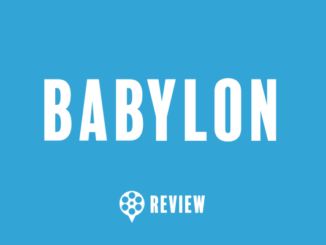M. Night Shyamalan is probably one of the more interesting directors working today and that hasn’t always been viewed as a compliment. When Shyamalan broke into the scene with The Sixth Sense in 1999, some critics compared him to Hitchcock and that is one bold statement to live up to. The Sixth Sense made a killing at the box office and became the rare horror film to be acknowledged by the Academy with six Oscar nominations, including Best Director and Best Picture.
Shyamalan followed up The Sixth Sense with Unbreakable which initially didn’t get the love it deserved in 2000 because audiences were expecting another Sixth Sense and had no clue Shyamalan was crafting his very own comic book film before it became all the rage to do so. Time has been kind to Unbreakable and now it’s viewed as one of his very best. It’s also another example of how interesting Shyamalan is, brave enough to tackle a genre in a film that was essentially packaged as a would-be thriller.
Shyamalan then followed Unbreakable up with Signs in 2002 and while it wasn’t as strong as its predecessors, it showcased Shyamalan’s capability to build tension while also telling compelling human stories. Shyamalan has a lot to say in his films and it’s definitely his biggest attribute and also his true detriment.
Films that followed such as The Village, Lady in the Water and The Happening are examples of that detriment. Shyamalan has a lot of big ideas and one might assume that he thinks they’re much more significant than they actually are. For instance, it’s clear he thought he was re-inventing the wheel for fairytales with Lady in the Water but the end result was a self-indulgent and muddled mess. The same can be said for The Happening which starts strong and then nosedives into a pretentious lecture about how we’re killing the environment, which is why it’s turning against us. Again, a lot of interesting ideas, just not consistent execution.
Shyamalan got back into our good graces after more failures such as The Last Airbender and After Earth, by dialing it way back and putting a fresh spin on found footage horror with The Visit. This film got Shyamalan back to his other strength – establishing and maintaining a strong atmosphere and tension. The film ended up being a pleasant surprise, especially since many of us were expecting another stinker.
Shyamalan continued his hot streak with Split, another showcase of sustaining tension and displaying his ability to pull the very best out of his lead, James McAvoy. McAvoy’s performance, essaying several different and distinct personalities is the performance of his career and the film itself found Shyamalan back in true thrilling form as a director. It was a blend of thriller, horror and over the top therapy sessions and somehow it all worked.
Split also became a stealth sequel as sorts. Shyamalan is also known for his signature twist endings and Split featured a stinger that connected the film to Unbreakable, one of his very best. That means, not only was Split a thriller but by connecting it to Unbreakable, it somehow connected to his comic book universe and it once again shows just how interesting Shyamalan is. It’s very brave to connect a new film to a movie that was 17 years old at the time, especially if most in the audience may not have been familiar with it. It was a bold move that has led to what could be Shyamalan’s most interesting film yet.
Glass is the third film in Shyamalan’s comic book movie trilogy and I’m not sure if he’s had this all planned out since 2000 with Unbreakable but here we are in 2019 and these worlds have officially collided. Shyamalan is coming off of two solid films in a row after a string of mediocre efforts with Glass so there is a lot of hype around the film to see if he’s still got it, or if those two recent movies were a fluke. I can say that Shyamalan has crafted another interesting film that is full of ideas that work and it’s suitably entertaining but it also suffers from a Shyamalan trademark that has the director trying to tackle too much in the climax. Shyamalan can’t get out of his own way so instead of a great film, we get a good one.
Glass picks up an unspecified time after Split. Kevin Crumb (James McAvoy) returns with his multiple personalities, now dominated by the superhuman Beast, and is once again kidnapping girls. Security guard David Dunn (Bruce Willis), whose origin story began in Unbreakable, works with his son, Joseph (Spencer Treat Clark), and has become Philadelphia’s Batman – a shady vigilante who wanders the streets handing out justice without due process. He’s on the search for Crumb and, when he finds him, there’s a showdown that ends with both of them being taken into custody. They are transported to a maximum-security asylum to occupy rooms alongside a third special prisoner – Elijah Price a.k.a. Mr. Glass (Samuel L. Jackson), a villain also introduced in Unbreakable. The three are to be treated by Dr. Ellie Staple (Sarah Paulson), a psychiatrist who specializes in “superhero delusions.” Her goal is to convince her patients that there’s a difference between comic books and reality and no one in the “real world” has superpowers. Of course, she underestimates the three men and, while she lectures, the seemingly catatonic Mr. Glass teams up with The Beast and sets up a situation that forces Dunn’s hand.
What Shyamalan gets right is the use of a very minimal budget. This is in all essence, a comic book film, but Shyamalan is working with a $20 million budget that he financed himself. His biggest accomplishment is that it doesn’t feel like a $20 million film. He’s able to make the scope appear much larger than it appears and his use of style is probably some of the strongest he has displayed. While there are issues with the overall ending, the climax itself is top notch and elevates action without turning things into an over the top display with heavy use of CGI. My complaint about some comic book movie climaxes is that they become an orgy of action and special effects so it’s refreshing what Shyamalan accomplishes here by scaling things back yet also being able to keep the action effective.
Much of the tension in Glass is more psychological than action driven and that’s also an asset. Through the character of Dr. Ellie Staple, played effectively by the always reliable Sarah Paulson, we do begin to question whether these are characters with extraordinary abilities or if these are just delusions in their mind that can easily be explained away. Glass is at its best when it blurs this line, even if the audience ultimately knows that these characters are indeed special. A three-way therapy session involving the three leads and Staple is probably my favorite sequence of the film because she does a good job making you question what you believe. It’s also the most visually stunning scene of the film which Shyamalan using distinct color to truly make the scene pop.
The performances are top notch but James McAvoy, once again, is the real MVP here. I was in awe of how well he balanced all of his different personalities and never once became a caricature or just simply chewed the scenery. Depending on what personality he’s in McAvoy can be very funny and then flip it just moments later and be convincingly tragic. This is no easy feat and its a testament to his talent. Bruce Willis plays Dunn as tired, worn-out, and world-weary and that’s exactly what is needed. Dunn would be at this stage of his story and while it’s a subdued performance, it’s quite good. Also subdued is Samuel L. Jackson, who spends much of the film silent and biding his time. Some have criticized this, wanting a more typical Jackson performance but that’s not who Elijah is. He makes you see his mind working and that’s why the performance works. Providing adequate support is Anya Taylor-Joy, returning as the girl The Beast released in Split. I thought she would feel shoehorned in but they utilize her well and she shares a couple of strong moments with McAvoy. Also returning all grown up is Spencer Treat Clark as David Dunn’s son from Unbreakable and he makes the transition from child to adult seamless without seeming awkward or out of place.
I would be ending my review here proclaiming high praise had it not been for the ending of the film. It’s clear what Shyamalan is trying to do but it doesn’t quite work and it almost cheapens the overall climax. The last few minutes or so feels like a series of multiple endings that don’t really work. It feels tacked on and it falls into the trap of explaining everything as if the audience isn’t smart enough to figure out what’s going on. It’s not really a typical Shyamalan twist but shows his nature to simply say and do too much. The ending didn’t ruin the whole movie for me but I was more disappointed that the film didn’t land the finish because I wanted to like it so much more.
In the end, Glass is a mostly satisfying conclusion to a trilogy that none of us really saw coming. It’s not interesting and it has some compelling ideas, especially if you’re into comic book mythology. It’s a good film that doesn’t derail the Shyamalan streak but the ending suggests that he could easily fall off the tracks if he doesn’t regain some of the focus he was able to tap into again with his most recent efforts.





